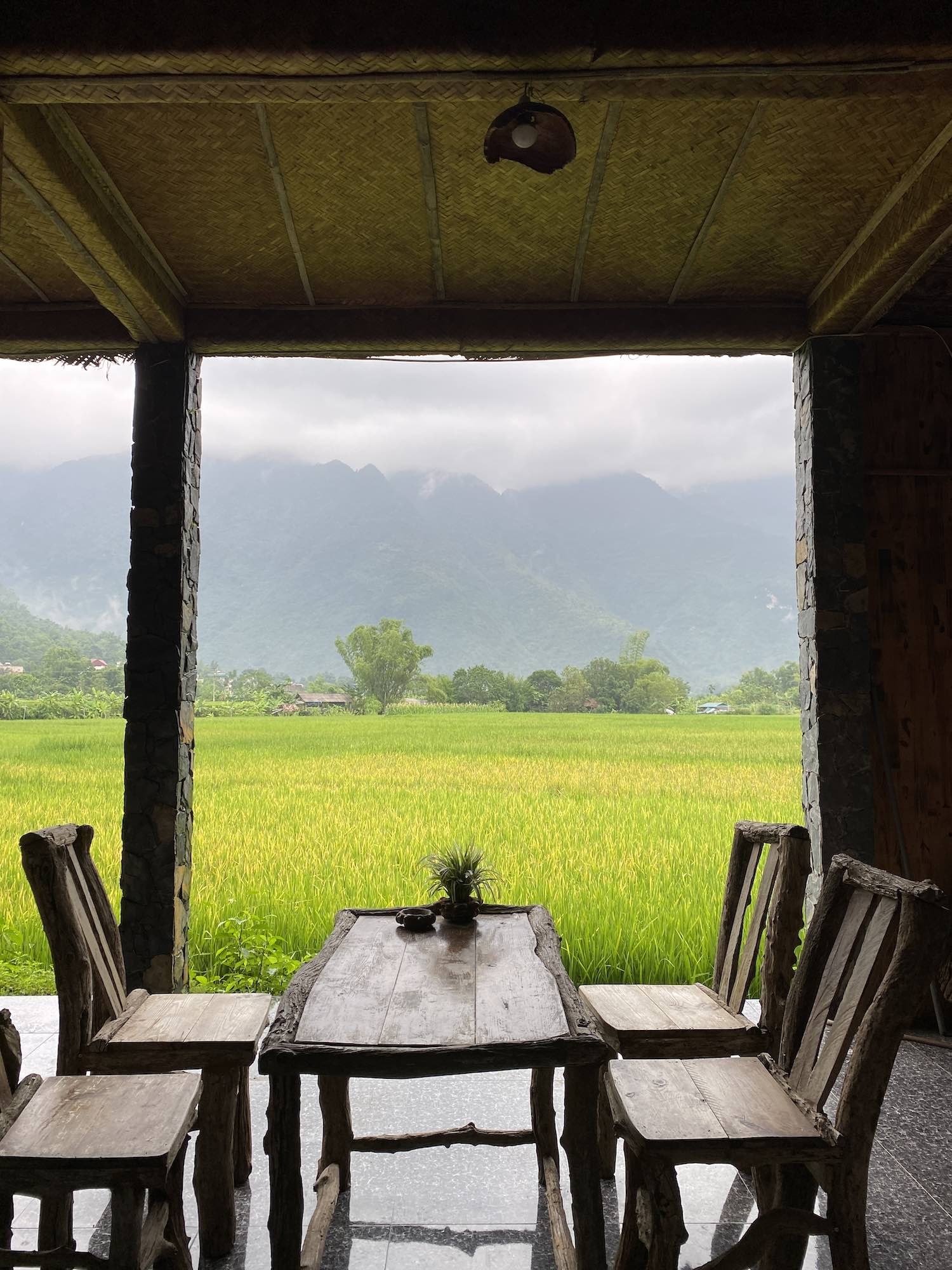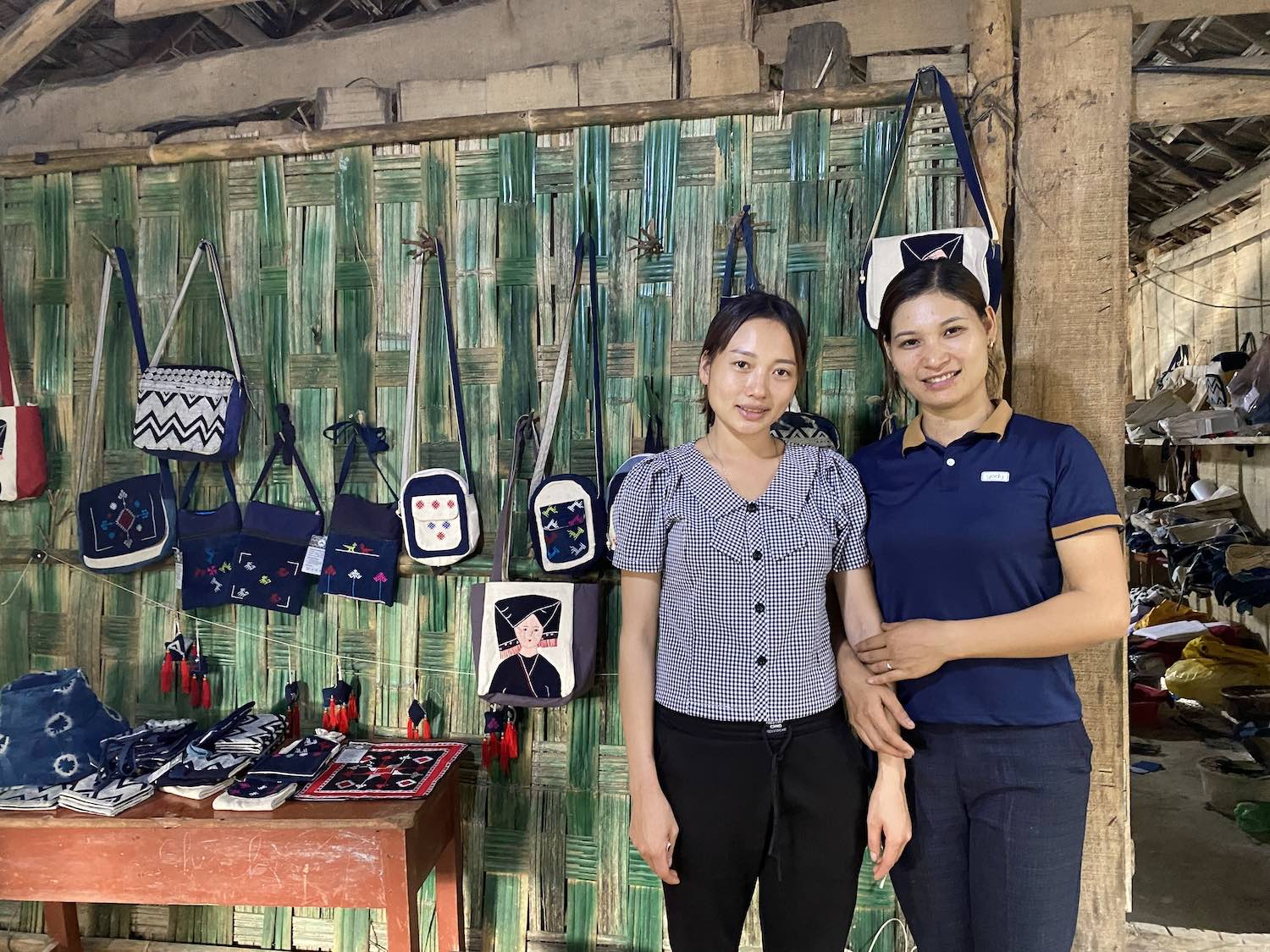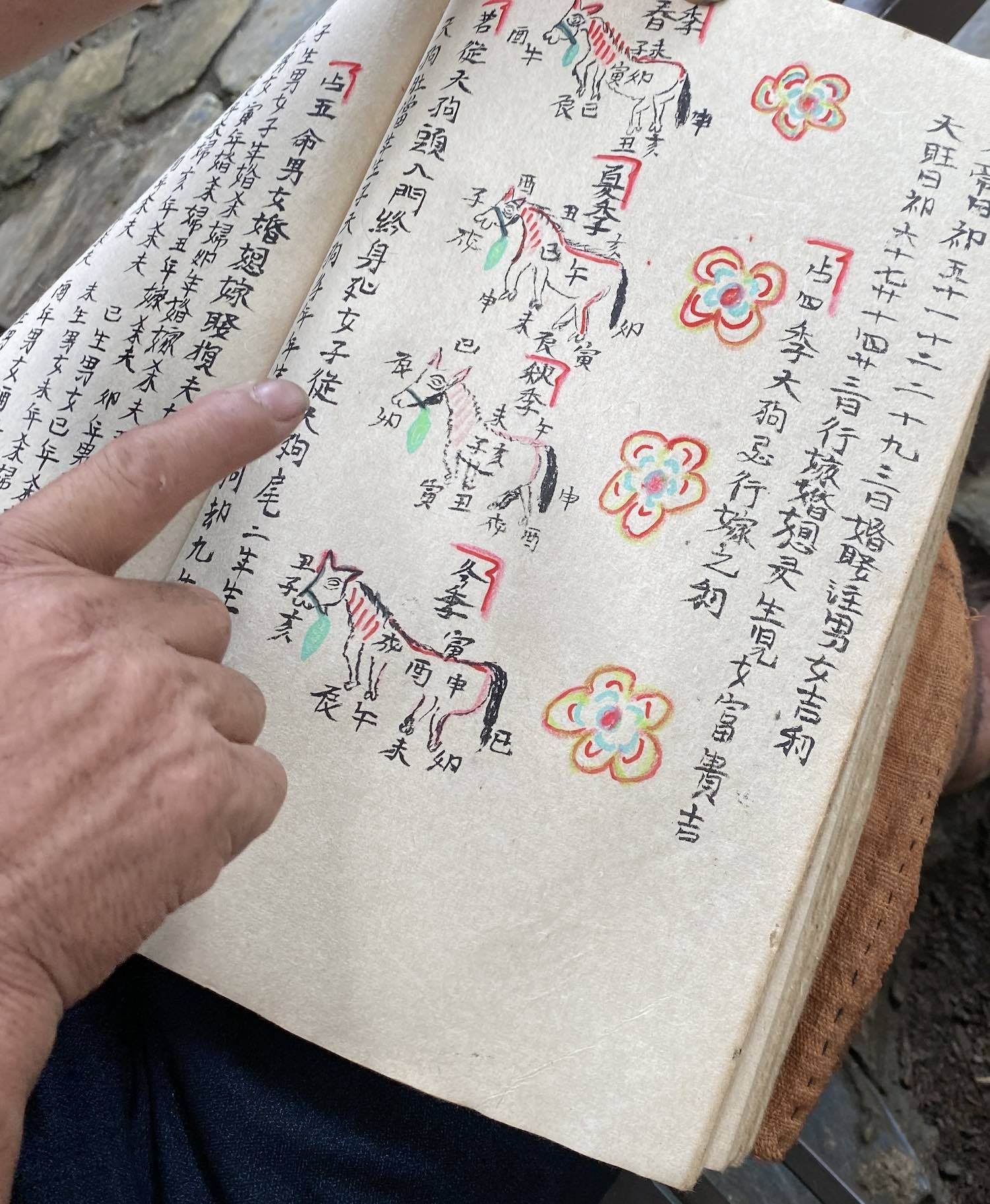A Journey of Transformation: From Familiarity to Endless Exploration
By Nora Trieu

Mapping and biodiversity training for tourism groups © SUSDEV
The unexpected destination
For the majority of my life, I have called Southeast Asia my home. However, my heart has always yearned for the unexplored, the unfamiliar, and the extraordinary that lies beyond my comfort zone. That is precisely why I was brimming with excitement when I embarked on my Master’s program in Sustainable Development, particularly because of the Living Lab. Little did I know, this journey was about to head to a completely unexpected destination.
On my very first day on campus, the news was announced that instead of Africa, we would go to Viet Nam, to be more specific, Hoa Binh province. Having spent a good part of my life in a town just an hour’s drive away from Hoa Binh, I could not help but think, “Is this not like traveling halfway across the globe just to come back home?”. For this reason, during my first year of the program, the prospect of returning to Vietnam failed to ignite any excitement within me, despite the fascinating coursework and research preparations.

It is VERY… again, I repeat, VERY IMPORTANT for Vietnamese to have their lunch break (aka lunch nap); so we took advantage of that break time when no one is willing to be interviewed, to enjoy this breath-taking view © SUSDEV
Falling in love with the journey
After an entire semester of preparation, the day of our arrival came, and we found ourselves in the quaint Mai Hich village, commencing two weeks of fieldwork. To my utter astonishment, not only did I fall in love with the research process all over again, but also with the people and the culture of this land.
On the one hand, the rotating group work system, while undeniably stressful, proved to be both fun and enlightening. In each rotation group, there are individuals from diverse original groups that tackled various aspects of the region, including carbon, biodiversity, mapping, scenic beauty, and tourism. Despite our unique research goals, we all shared the same geographical space, interacted with the same people, and immersed ourselves in the same culture. This dynamic allowed us to adopt a new lens each day, gaining fresh perspectives on the overarching picture. Collaborating with those from vastly different backgrounds highlighted the power of interdisciplinary approaches, a core principle of our program. In the end, we each could construct for ourselves a comprehensive image of the regions we studied from a mosaic of observations and knowledge exchanges during our group rotations.
On the other hand, I was shaken to my core by the realization that the Hoa Binh province I thought I knew so well had countless facets I had never encountered. Those facets could be the rich tapestry of ethnic diversity, or the on-going efforts of women and people here trying to bring about changes for a better future. As a child of an ethnic family that had lost touch with most of our cultural and traditional values, I was amazed and profoundly moved by how these communities, particularly ethnic women, held steadfastly to their identities in the face of adversity.

The brocade workshop where a group of Dao women are working to incorporate traditional Dao Tien’s brocade and printing techniques into tourism activities and more © SUSDEV
Gender and tourism: A qualitative inquiry into the empowerment of ethnic women
In my original Living Lab group, with the focus on tourism and gender, we set out to understand how Community-Based Tourism influenced the empowerment of ethnic women. Data collection was conducted through a combination of focus groups and semi-structured interviews, all of which adhered to pre-established procedural protocols. Our research approach followed the principles of qualitative methodology, specifically aiming to employ participatory action research, which entails the collaborative generation of knowledge and the pursuit of social change by engaging community members, activists, and scholars. It is crucial to acknowledge that qualitative research, by its very nature, entails interactions with human subjects. As such, the literature used in the development of focus groups and interview protocols served as a foundational framework and reference point to ensure data collection consistency. However, the dynamic nature of real-world circumstances often deviates from theoretical expectations. Consequently, we recognized the necessity of adapting our protocols to accommodate the nuanced realities and limitations we encountered in the field.
Each focus group comprised approximately 7 to 10 women, who were guided through a structured agenda that encompassed three key activities: (1) exploration of the seasonal calendar of the region, (2) analysis of the weaknesses and challenges affecting women’s engagement in tourism, and (3) envisioning their future roles and contributions to local tourism development. In contrast, semi-structured interviews delved more deeply into individual experiences and perspectives, focusing on a single interviewee at a time. Throughout the Living Lab project, we conducted one focus group session per day, and in a total of five interviews. It is essential to highlight that both the gender research team and the governance research team encountered significant challenges inherent in working directly with individuals. The most prominent difficulty stemmed from the task of locating and persuading individuals to engage in hour-long interviews, a task further complicated by language barriers.
Regardless, it is possible for a researcher to bridge the gap and establish rapport by lowering their guard before hoping to receive the same from their interviewee. Important notes include exhibiting expressive and welcoming demeanor while taking some time to engage with local people, which allow them to become acclimated to the presence of a stranger. Additionally, it is essential to adhere to local cultural nuances and etiquettes. For instance, lunch break is a very valued time of a day, and interrupting them during this break is likely to result in considerable offense. Simultaneously, it is imperative to engage in careful observation and identification of prospective interview participants. Key recommendations include the identification of individuals who exhibit receptivity, approachability, and most importantly, ensuring that they fall within the specified criteria for the intended interviewee groups.
On the last day of the living lab, we reached the following preliminary findings: (1) women have essential and unique roles in tourism, particularly CBT; (2) Their involvement in tourism varies as a dynamic interplay between ethnicities, geographical factors, governing systems, etc; and therefore (3) although women empowerment indeed happen along CBT development, it is a result of an intricate intersection of social, political, and economical aspects, which influence women’s lives in very different ways and degree.

Dao Tien’ language connects immensely with their cultural practices such as rituals, ceremonies, and more. This is an example of a type of books that shamen or wise elders read to analyze people’s fates based on their birthdays (in Lunar calendar) © SUSDEV
Embracing the known and unknown – a journey of endless exploration
While collecting data for our research, I was blown away by the diversity and intricacies of the answers we received. Women from different ethnic communities, despite living in relatively close proximity, had vastly different experiences of economical, social, and political power. This very realization had brought me to an acknowledgement that I had been guilty of homogenizing my perceptions of Hoa Binh province and its ethnic communities, overlooking the differences in their struggles, advantages, and capacities to drive change.
My journey to Hoa Binh with my colleagues for the Living lab, therefore, was not just a return home, nor merely an accredited course. It was a transformation, a testament to the infinite layers of wisdom and experience that this world has to offer. It is a reminder for myself, and I believe also for others who participated in this Living Lab, to never stop seeking, learning, and embracing the unknown, even within the known, and to always be open to new perspectives, questions, discoveries, and doubts even. In doing so, we can discover the incredible depth and diversity that potentially exists in even the places and subjects we think we know well. In doing so, we allow our knowledge to truly proliferate.